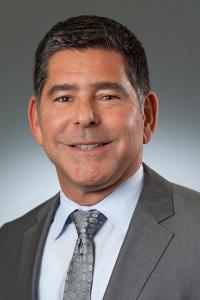Marc Linsky Suggests the Most Effective Ways to Save for your Child's College
Marc Linsky can help you make the best decision for how to save for your child's higher education.
WEST PALM BEACH, FL, UNITED STATES, May 11, 2020 /EINPresswire.com/ -- Most parents have a nagging idea in the back of their minds that they should be saving for their kid's college, but getting started can be daunting. An experienced financial planner like Marc Linsky can shed light on this important topic and help you make the best decision for your family.The best option for you depends on factors like total income level, debt and other responsibilities, the state you live in, your financial risk tolerance, and other personal attributes. To get the full picture it's a good idea to sit down with a certified financial planner to discuss your personal goals and plans. Every situation is different and the experience and education of a good financial planner like Marc Linsky is key to making the best decision for you and your family.
The most common option when it comes to saving for your child's education is a 529 plan. When enrolled in a 529 plan you can make tax-free contributions often right out of your paycheck. Marc Linsky has seen that the best college savings plan is the one that you'll use and continue contributing to, so automatic deductions are a great option. With a 529 plan you can choose your investment strategy and contribution limits are high, so you can save as much as you're able. Marc Linsky recommends saving as much as fits your budget early in your child's life to give the money time to grow. But even a small amount is better than nothing.
Another common option that Marc Linsky will explain is an Education Savings Account or ESA. With this plan, you can contribute up to $2,000 per child per year. Contributions are tax-free and you'll typically earn at a higher interest rate than traditional savings accounts. However, you can only participate if you fall into a certain income bracket and the money must be used before the beneficiary reaches the age of 30. Those restrictions may not be appealing to some parents but will be just fine for others. It just depends on you and your situation, and Marc Linsky can help you work through it.
Marc Linsky always recommends checking with your employer to see if they offer any child education benefits. Some employers offer contributions to a 529 or other education savings fund, either on an ongoing basis or as a one-time benefit when a child is born. Every little bit helps, especially when that money will earn interest over the course of your kid's childhood.
When it comes to saving for your child's education, the most important thing to do is to get started. The second most important thing is to work with a certified financial planner like Marc Linsky to sort through the options and choose the best one for your family.
Caroline Hunter
Web Presence, LLC
+1 786-233-8220
email us here
Legal Disclaimer:
EIN Presswire provides this news content "as is" without warranty of any kind. We do not accept any responsibility or liability for the accuracy, content, images, videos, licenses, completeness, legality, or reliability of the information contained in this article. If you have any complaints or copyright issues related to this article, kindly contact the author above.

